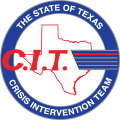Cross Creek Hospital Together With Ascension Seton helps children, adolescents, and adults who are struggling with suicidal thoughts through an unmatched quality of care and support. Located in Austin, TX, Cross Creek Hospital Together With Ascension Seton is the leading provider of suicidal thoughts treatment.
Learn More About Suicidal Thoughts Treatment
Learn more about suicidal thoughts treatment at Cross Creek Hospital Together With Ascension Seton in Austin, TX
Suicidal ideations, also known as suicidal thoughts, is a term used to describe an individual’s preoccupation with death and/or dying. Often indicative of the presence of a mental health disorder(s), suicidal ideation are thoughts one has about ending their own life. These thoughts, which occur as the result of an individual being unable to cope effectively with certain stressors, can be a temporary thought or a well laid out plan meant to end one’s own life. While the presence of these thoughts do not mean that an individual will in fact take their own life, these individuals are at an increased risk for attempting suicide.
If you or someone you love is wrestling with suicidal thoughts, it is crucial that mental healthcare be sought as soon as possible. It is important to know that there is help available and that suicide is not the answer. There are a variety of treatment options available that can help alleviate this type of thinking and can treat the symptoms of any existing mental health conditions that could be causing this type of thinking.
Statistics
Suicidal thoughts statistics
It is estimated that in the United States, suicide takes approximately 40,000 lives each year, with an average of one person dying by suicide every 13.3 minutes. Additionally, for every suicide attempt made by a male, there are three female suicide attempts. However, the opposite is true when it comes to completed suicides, with rates tending to be higher among males with an average of four male suicides for every female suicide.
Causes and Risk Factors
Causes and risk factors for suicidal thoughts
Suicidal ideation is a feeling that tends to develop when an individual is no longer able to cope with an overwhelming situation and begins to think that suicide is the only answer. However, the exact reason for why some individuals experience suicidal ideation in stressful situations while others do not, is not known, but there are multiple hypotheses. Some of the most common hypotheses include:
Genetics: Many researchers believe that there may be a genetic factor associated with a higher risk of suicide. More specifically, individuals who have suicidal thoughts tend to have a family history of mental health conditions that often lead to the development of suicidal ideation.
Environmental: Researchers also believe that there are a number of environmental factors that can cause the development of suicidal thoughts. Some of these factors include sexual abuse, financial problems, unemployment, and the lack of skills needed to cope with stress. Additionally, individuals who are struggling with a mental health condition are at a higher risk for experiencing suicidal ideation as it tends to be symptom commonly associated with multiple mental illnesses.
Risk Factors:
- Academic failure
- Loss of employment
- Family history of mental illness
- Personal history of mental illness
- Undiagnosed mental illness
- Poor support network
- Homelessness / poverty
- Being the victim of bullying
- Being the victim of crime
- Experiencing trauma, abuse, and/or neglect
- Experiencing the loss of a friend or loved one
- Personal history of substance use
Signs and Symptoms
Signs and symptoms of suicidal thoughts
In many instances an individual who is having suicidal ideation will often keep their thoughts and feelings to themselves, meaning they may appear to not have any apparent signs. However, some individuals will display a wide variety of signs and symptoms. Some of these signs and symptoms may include:
Behavioral symptoms:
- Threats of self-injury
- Changes in routine
- Getting affairs in order
- Use or abuse of drugs and/or alcohol
- Engaging in risky behaviors
- Talking or writing about death and dying
- Social withdrawal or isolation
- Self-harming behaviors
- Giving possessions away
- Consuming more drugs and/or alcohol
- Decline in interest of things that were once enjoyed
- Saying goodbye to others as if it were the last time
Physical symptoms:
- Panic attacks
- Insomnia or Hypersomnia
- Weight loss or gain
- Decline in hygiene
Cognitive symptoms:
- Abnormal preoccupation with death and/or dying
- Inability to fulfill roles and/or responsibilities
- Lack of focus
- Memory impairment
- Impaired concentration
Psychosocial symptoms:
- Feeling trapped
- Hopeless
- Increased self-criticism
- Heightened state of anxiety
- Very moody
- Changes in personality
- Irritability
- Inability to experience pleasure
- Agitation
- Depressed mood
Effects
Effects of suicidal thoughts
The presence of suicidal ideations will eventually take an emotional toll on not only the individual, but their loved ones as well. Additionally, should an individual make an actual attempt at suicide they can cause a number of serious injuries that can be permanent and debilitating. The following are potential effects that can occur if a person is struggling with ideations of suicide:
- Scars or permanent tissue damage
- Recurring acts of self-harm
- Brain damage
- Organ failure
- Paralysis
- Coma
- Hemorrhage
- Broken bones
- Death due to completed suicide attempt
Co-Occuring Disorders
Suicidal thoughts and co-occurring disorders
When an individual is struggling with thoughts of suicide, it is often indicative that a mental health disorder is present. Below is a list of disorders that include suicidal ideation as a symptom:
- Anxiety disorders
- Posttraumatic stress disorder
- Depressive disorders
- Body dysmorphic disorder
- Personality disorders
- Schizoaffective disorder
- Bipolar disorder
- Adjustment disorder
- Eating disorders
- Schizophrenia
- Substance use disorders

















